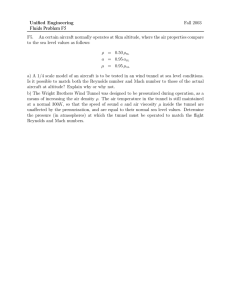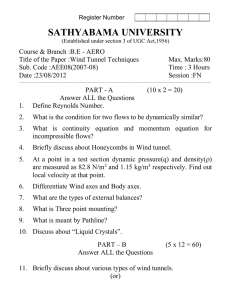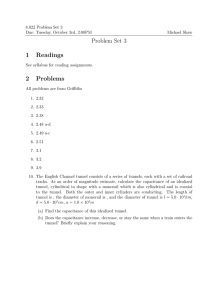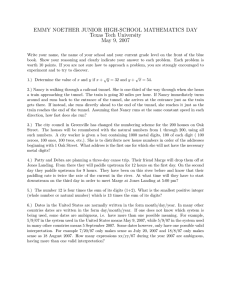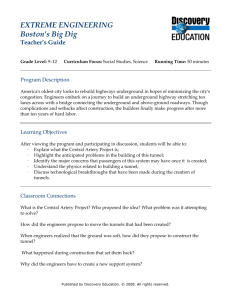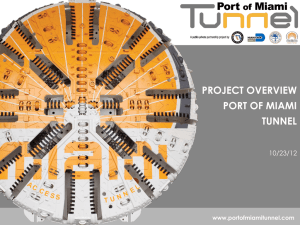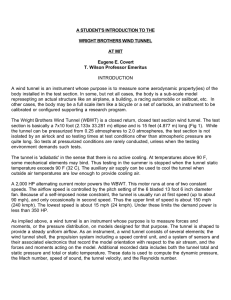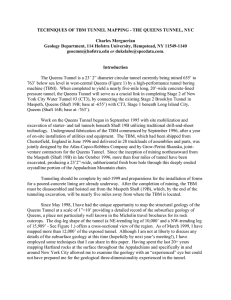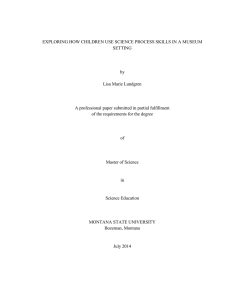Three-Dimensional Wall Effects Γ
advertisement
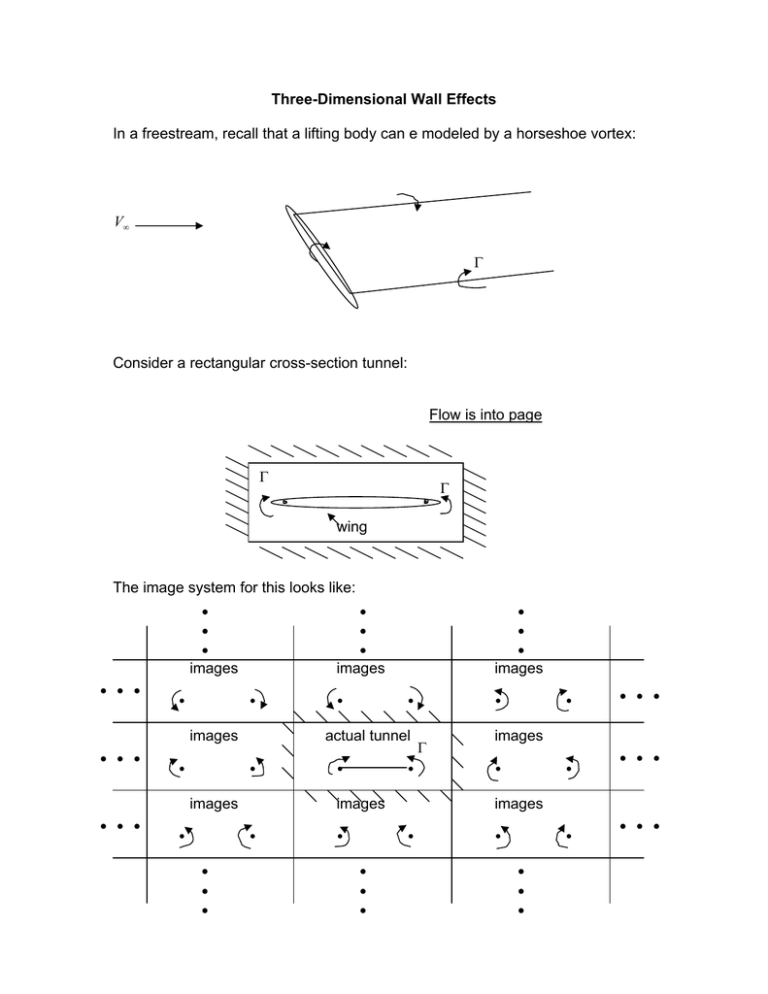
Three-Dimensional Wall Effects In a freestream, recall that a lifting body can e modeled by a horseshoe vortex: V∞ Γ Consider a rectangular cross-section tunnel: Flow is into page Γ Γ wing The image system for this looks like: y y y images y y y y y images y y y y y y images images y y y y images y y y y y y y actual tunnel images y y y y y y y Γ y y y y images y y y y y images y y y y y y y y y y y y y Three-Dimensional Wall Effects The effect of these images is: For fixed lift, such that Γ is constant, ∗ an upwash exists due to images ⇒ α is effectively larger α∞ α tunnel ≅ effective freestream AOA AOA of model in tunnel + ∆α i correction due to upwash induced by images ∗ Similarly, this creates decrease in induced drag relative to freestream flight: Recall, C Di ∝ C Lα i ⇒ ∆C Di = C L ∆α i ⇒ C Di = C Di ∞ tunnel + ∆C Di Or, since we are interested in the total drag: C D∞ = C Dtunnel + ∆C Di Specific formulas derived in detailed analysis give that: S ∆α i = δ ( )C L C where S = reference area C = tunnel cross - sectional area δ = factor which depends on tunnel & model geometry Wright Brothers is an elliptic cross-section with dimensions 10 ft wide by 7 ft high. b h B 16.100 2002 2 Three-Dimensional Wall Effects Define: be h B b k≡ e B be ≡ effective span ≈ 0.9b λ≡ horseshoe model b caused because wing tip trailing vortices are inboard of tips a short distance downstream actual trailing vortex Boundary Correction Factor, δ Values of δ for a wing with uniform loading in a closed elliptical jet K = Effective span/Jet width 16.100 2002 3
